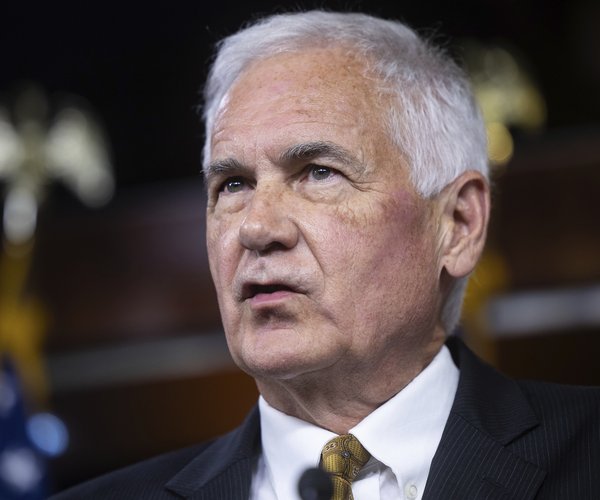California Gov. Jerry Brown scored a victory for common sense last week when he vetoed a bill that would have imposed criminal penalties on minors — or their parents — who ski or snowboard without a helmet. "While I appreciate the value of wearing a ski helmet, I am concerned about the continuing and seemingly inexorable transfer of authority from parents to the state," Brown explained. "Not every human problem deserves a law."
That veto endeared Brown to conservatives who have grown wary of the Democratic Legislature's nanny-state ways. It also highlighted how unpredictable Brown can be.
There are two bills awaiting his signature that will tell Californians much about Brown.
As a candidate for governor, Brown said he opposed giving driver's licenses to illegal immigrants. So what will Brown do with AB 353, authored by Democratic Assemblyman Gil Cedillo, which would prevent police officers from impounding the cars of sober unlicensed drivers — read: illegal immigrants — stopped at DUI checkpoints?
San Bernardino County Sheriff-Coroner Rod Hoops opposes the bill, in part because his deputies have to clean up after hit-and-run accidents involving unlicensed drivers.
Unlicensed drivers can be the worst drivers. The AAA Foundation for Public Safety looked at fatal accidents in 2008 and found that 29 percent of fatal car crashes in California involved a driver without a valid license; 1,964 had their licenses suspended or revoked; 1,802 were unlicensed; and another 1,200 were unknown.
Cedillo spokesman Conrado Terrazas told me that AB 353 is needed because unlicensed drivers "have to get to work." That's an argument that drives me up the wall — that Sacramento should change state law to accommodate adults who violate federal immigration law and then knowingly break California driver's license law so that they can drive (not take the bus) to jobs possibly obtained by document fraud.
Yet the cupidity of local governments could give Brown cover should he want to sign the bill. An investigation by California Watch and the Investigative Reporting Program at the University of California, Berkeley found that most motorists whose cars were impounded at DUI checkpoints were sober unlicensed illegal immigrants. In some locales — such as the infamous city of Bell — DUI checkpoints sure seem like the new speed trap.
In 2009, the state impounded the cars of six unlicensed drivers for every drunken driver. It very well could be that the state has six illegal immigrants driving for every drunken driver, but the stats also may indicate what Republican Assemblyman Chris Norby called "bounty hunting cops" — eager to part owners from their cars.
"As a property-rights Republican," Norby told me, "I want to strike a balance."
Republican bigfoot Jon Fleischman said the measure "hits the sweet spot between a traditional conservative and a traditional libertarian."
On a more partisan front, Democratic leaders put Brown in a sticky corner when they jammed through a bill to limit initiatives to the November ballot only. The bill would be helpful to labor and Dems. But how could Brown sign it after spending his first months on the job arguing in favor of a budget/tax extension deal that he wanted to put before voters in a June special election?
Brown's new mantra would have to be: Let the voters decide — but only when I say so.
Email Debra J. Saunders at dsaunders@sfchronicle.com.







